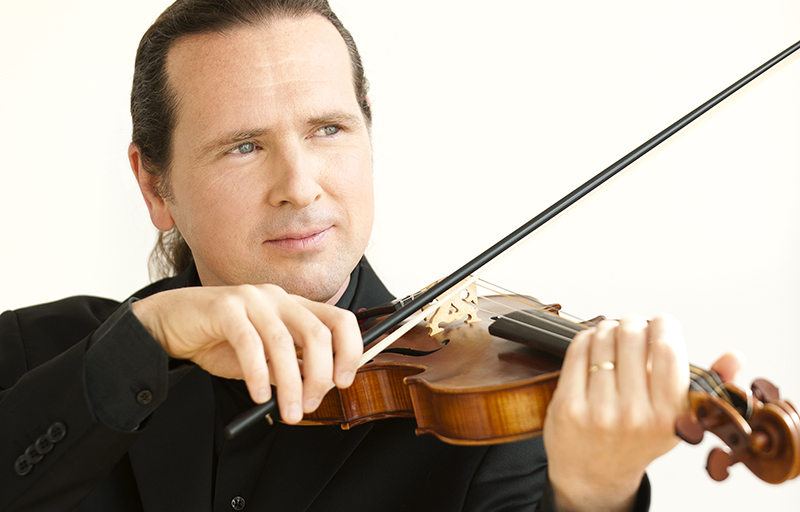Photo by Sian Richards
Christopher Verrette joined the Tafelmusik Baroque Orchestra 25 years ago, in 1993. As we mark this milestone year for Chris, we asked him to answer our “get to know” questions.
How did you come to choose your instrument?
I began violin lessons at age nine, after a couple of years of piano study. I first played viola in a school ensemble at age twelve, and have continued to play it alongside the violin ever since.
What was your first music gig?
My first paid engagement as a musician was in a small orchestra for the first public performance on a fine new Austrian organ that was installed in the somewhat surreal venue of an austere New Hampshire church. We played the Concerto for viola, organ, and strings by Michael Haydn. I remember being excited at the time to be making ten dollars for playing. So there I was at thirteen playing a little-known eighteenth-century work in a church without conductor … Perhaps the die was cast there?
Who has been your greatest inspiration?
My father had a big influence on my musical attitudes and choices (among other things, of course), as he did on those of his many students as a pianist and educator with a specialty in jazz. I miss being able to talk
with him about what we’re all doing. (And my mother, a self-proclaimed “musician’s widow,” put up with it all.) Among violin teachers, Stanley Ritchie is especially important, not only for his approach to the instrument, but for how he on one hand encouraged constantly thinking about the music at hand, but also got me to bring more of my own personality and imagination to my performances.
What is your “guilty pleasure” music to listen to?
For my own personal listening I lean toward the big symphonic repertoire that I don’t play much anymore (especially Bruckner, Mahler, and Ravel) or jazz.
What are the last three recordings you’ve listened to?
• Bach Cantata 42 (I’m memorizing a new part for the Canadian tour of J.S. Bach: The Circle of Creation, which includes an arrangement of an aria from the cantata)
• Billy Strayhorn Lotus Blossomas played by Duke Ellington
• Ravel Miroirs
What is your favourite thing to do in Toronto during your free time?
People who travel with me know I often take long walks on tour, and in fact I like to do that here in Toronto as well, whether on trails in parks or just around the city.
Where is your own personal oasis in Toronto?
Having recently moved, I am really enjoying spending time in my new apartment in Don Mills: very quiet, cozy, and peaceful. For walks, Edwards Gardens is nearby.
Are you involved with any clubs or other organizations in your off time?
While I am no longer active there, I’d like to mention the Drop-in program at Church of the Redeemer, simply because I was once thanked by an audience member for bringing it to her attention through one of these features. It inspired her to volunteer then, so maybe someone else will be inspired this time. They do invaluable service for the disadvantaged along the Cultural Corridor we share, five days a week.
You have a night off — what do you do?
I love to attend cultural events in Toronto, whether my colleagues’ personal projects or larger things like symphony, opera, and theatre, but given how full our own schedule has become, I am inclined to stay in more. I try to strike a good balance.
What words of wisdom would you pass on to budding musicians?
First of all, I would encourage anyone to fully explore their musical interests and instincts. It’s important to practise enough, which is a lot, but not to neglect the analysis and research that leads to greater understanding of the music and its context (and may focus one’s practising). Whatever other interests and experiences one has can also be called upon in one’s music making. The world needs people who are curious about music, whether they pursue it professionally or not. Good jobs are few and far between — I consider myself very fortunate — but there are countless other ways to be involved with music.

